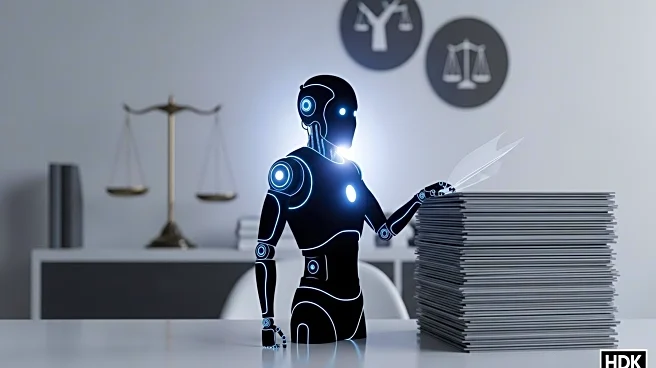What's Happening?
John Kucera, a partner at Boies Schiller Flexner, acknowledged errors in a legal brief related to a civil case against actor Danny Masterson and the Church of Scientology. The errors were attributed to the use of artificial intelligence tools during the preparation of the brief. The Church of Scientology highlighted these errors in their reply brief, suggesting that the plaintiffs' arguments should be disregarded due to citation inaccuracies. Kucera admitted responsibility for the oversight and expressed regret, stating that the firm is investigating the failure of its controls and will take corrective action.
Why It's Important?
The incident underscores the challenges and risks associated with integrating artificial intelligence into legal practices. As AI tools become more prevalent, law firms must ensure rigorous oversight to prevent errors that could undermine legal proceedings. This case highlights the potential consequences of AI-related mistakes, particularly in high-stakes litigation involving prominent figures and organizations. The credibility of Boies Schiller Flexner, a prestigious law firm, may be affected, prompting a reevaluation of AI usage policies within the legal industry.
What's Next?
Boies Schiller Flexner is conducting an investigation to determine the cause of the AI-related errors and to implement measures to prevent future occurrences. The firm may revise its AI policies and training programs to enhance accuracy and reliability in legal documentation. The Church of Scientology's appeal continues, and the court's decision on the motion to strike could influence the case's trajectory. Legal professionals and firms are likely to scrutinize AI integration practices more closely, potentially leading to industry-wide changes.
Beyond the Headlines
The incident raises ethical questions about the reliance on AI in legal contexts, where accuracy and accountability are paramount. It may prompt discussions on the balance between technological innovation and human oversight in professional settings. The case also highlights the evolving role of AI in shaping legal strategies and outcomes, potentially influencing future litigation practices.









